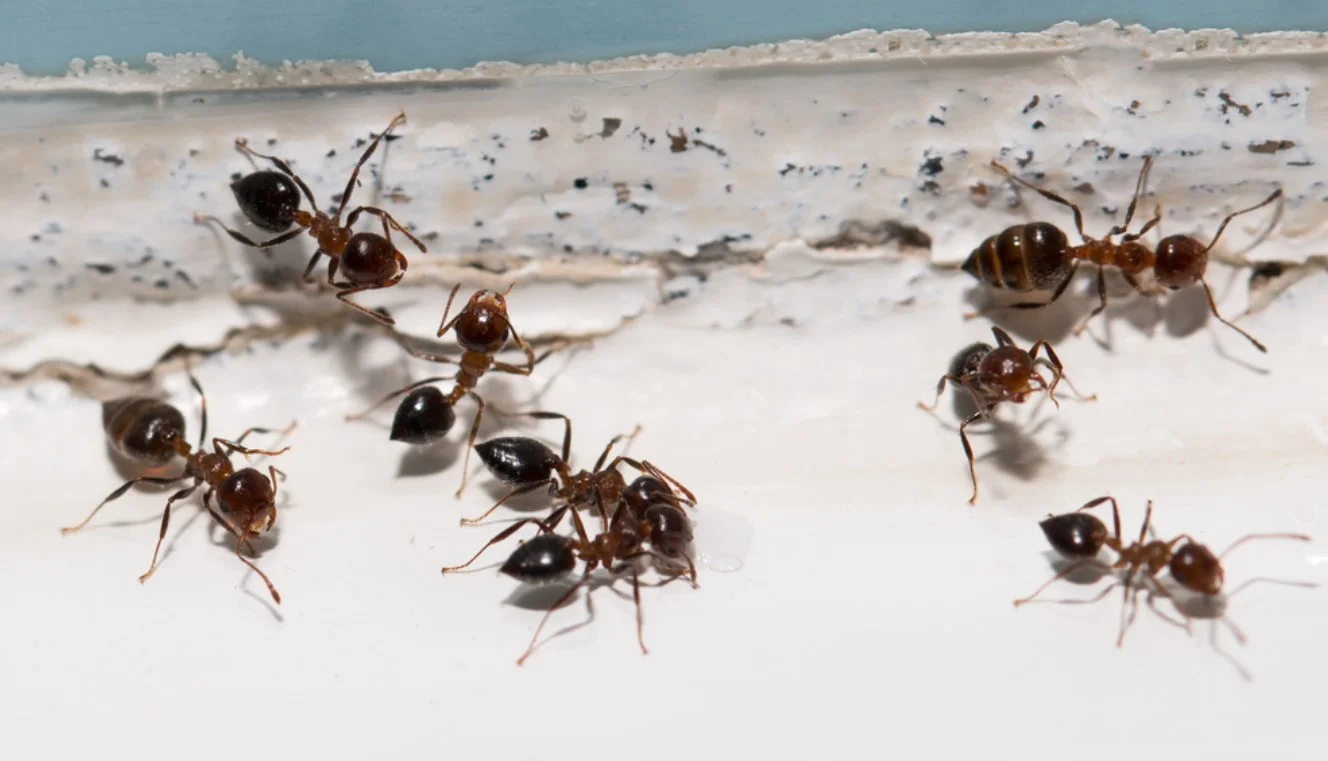The article will discuss the use of permethrin for ants and termites. It is a chemical that has been used for years to control fleas, lice, ticks, and other insects in human homes.
Recently it’s been found to be effective against many types of household pests including ants and termites. Permethrin is odorless when dry, but gives off a slight odor when wet.
The treated surfaces can be cleaned with soap and water or detergent without harming the treatment’s effectiveness.
This blog post will cover how permethrin works against these two pesky household pests, what you need to know before using this pesticide around children or pets, the right way to apply it so it doesn’t run off onto your floor
Seite Inhalt
Does Permethrin Kill Ants and Termites
Yes, Permethrin is one of the best insecticides for killing ants and termites in your home, lawn, or garden. The active substances contained in it target and destroy the ants’ nervous system thereby killing them.
What does Permethrin do to ants?
It penetrates the outer shell and prevents new ants from entering before killing the inside of and any other ant on contact.
Permethrin targets one of the targets for pyrethroid-based insecticides, the GABA receptor.
The GABA receptor is an essential inhibitory neurotransmitter action in insects and by destroying it from within, permethrin essentially incapacitates ants before they have a chance to take defensive action.
How to use Permethrin for Ants & Termites
The natural products for ant and termite treatment may include the products such as permethrin, hexaflumuron, and propoxur.
However, it is to hang out understanding of the formulation and risks related toward them before taking steps at using such types of insecticides.
For instance, permethrin treatments should be done in shaded areas or protected from rainfall while hexaflumuron treated surfaces will need to stay dry.
A few options for killing ants and termites with Permethrin include:
Spray the surface of a window sill, window frame, or door jamb with a diluted mixture of permethrin and water. The ants will walk through this surface and be killed by application to their body.
Sometimes when they sense one another, workers from one colony may start attacking the other in an attempt at territorial clearance, leaving them vulnerable to any hive-clearing chemical agents they have been subjected to.
In this case, it might be useful simply to apply straight permethrin in smears on top of contact points in a formicarium containing both colonies.
The most common way is probably baiting traps containing sprays containing pyrethroid pesticides that target the ants or termites around your home and garden.
Side Effects of using Permethrin for Ants
Permethrin may kill other harmless insects such as ladybugs. Since both ants and ladybugs use this same enzyme as a target for their venomous Stingers, both would be killed.
Therefore you can’t use Permaerthirn to fight off an ant invasion without killing your ladybirds too – you could try using boric acid or fipronil spray if you want to do that without hurting beneficial bugs!
FAQs on Permethrin for Ants
How long does permethrin take to kill ants?
Permethrin can effectively kill ants within 4 hours. Permethrin is a pyrethroid insecticide that is applied to clothing, footwear, and buildings by spraying or treatment of surfaces.
It creates an ant-specific neurotoxin in the ants’ digestive system, shutting down their central nervous system. Without any way to detect stimulus or command muscles, the ant dies shortly thereafter.
This usually takes about 4 hours for them to die because they need time to digest it and absorb it before they die from its toxic substance after it has been digested and absorbed.
The process of digestion allows permethrin time enough for its toxic effect to incapacitate the insects.
Schlussfolgerung
Permethrin is used to kill a variety of pests and parasites on premises such as structures or buildings or homes. The abatement of ants is more complicated than simply spraying Permethrin because they can’t get near enough to get soaked with it so will not be killed by contact with Permetherin’s oil that coats surfaces where it’s sprayed which then kills bugs that come into contact with it after a short while also by suffocating them.
READ MORE:
- Wo kann ich Bettwanzenbomben kaufen? - 30. Januar 2023
- Wo kann ich ein Mittel zur Bekämpfung von Bettwanzen kaufen? - 30. Januar 2023
- Wo kann ich Bettwanzenspray kaufen? - 30. Januar 2023
